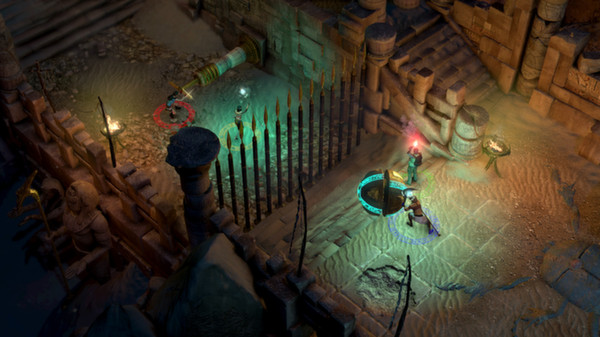Tomb Wader.
Lara Croft has been on a remarkable adventure over the the past 4 years, and it didn’t even involve raiding any tombs. The Tomb Raider series’ journey back into relevancy, jump-started by the sleeper hit Lara Croft and the Guardian of Light in 2010 and then continued by the hugely popular 2013 Tomb Raider reboot, was a big success story for one of gaming’s most iconic series, proving that developer Crystal Dynamics still had it in a post-Uncharted world after a run of underwhelming titles that failed to set the industry alight.
While we impatiently await the release of Rise of the Tomb Raider, the next entry in the core Tomb Raider series, this follow-up to the isometric action/adventure game Guardian of Light hopes to keep us satisfied for the time being. Lara Croft and the Temple of Osiris has been heavily anticipated by those who played its predecessor, which was hailed as a pleasant change of pace for Miss Croft, but despite solid foundations having been comfortably laid out for its sequel, a number of problems have made this follow-up quite notably worse than the previous entry in the series.
Temple of Osiris sees Lara travelling to Egypt, teaming with fellow treasure hunter Carter and imprisoned gods Horus and Isis in order to take down the evil god Set, who looks a lot like Anubis… but isn’t actually Anubis. Apparently, there were more dog-faced gods in Egyptian mythology than I was initially aware of.
The game sees Lara visiting more tombs than she did in the actual Tomb Raider reboot, and despite isometric games not typically being well-known for great visuals, Temple of Osiris is quite competent in this department. The Egyptian ruins you traverse through are authentically crumbly, and almost every corner you turn sees you faced with a new danger to confront. Much like Guardian of Light, Temple of Osiris very much sees Lara Croft returning to her Indiana Jones-esque roots, rather than the straight-up action/adventure gameplay of the Uncharted-aping 2013 reboot.
Unfortunately, while the game certainly looks all set to be a continuation of the success of its predecessor, it falters dramatically when it comes to its biggest selling point: its co-op gameplay. Playing Temple of Osiris online with only one other player (it supports up to 4 players) is like slogging through mud, due to some incredibly prominent frame-rate issues that will see gameplay grind to a halt more often than not. As the game continued to struggle through my multiplayer playthrough, it became increasingly frustrating to fall prey to enemy attacks and awkward platforming jumps through no fault of mine, but because I was having to contend with a frame-rate that would often seemingly fall below the 20fps mark.
As such, I found it more gratifying to play the game alone than I did with a friend by my side. In co-op, one player must choose a tomb raider while the other must choose a god, but in solo play you’re granted the powers of the other classes so you can successfully work your way through the game’s puzzles. While none of the puzzles are too challenging, they break up the gameplay nicely and make for some fun distractions. The controls are fluid and responsive, and there are some fun abilities that you can use such as the grappling hook—grappling hooks in video games will never not be fantastic.
The highlight of the gameplay, though, are the boss fights. Fighting towering monstrosities, from giant alligators through to oversized Scarab beetles, is both intense and challenging, with many of them requiring as much puzzle-solving as they do straight-up gun firing.
There are many guns to be found in the ruins of the Temple of Osiris, and while it may look a bit incongruous to see Egyptian god Horus holding a shotgun, it doesn’t really matter when you’re blowing apart walking skeletons. An issue with the guns, though, is that only a few of them are really much use. The dual pistols Lara starts off with are the easiest to implement in a firefight given their steady rate of fire, while the sub-machine gun you eventually pick up is really the only gun you’ll need for the rest of the game, given its higher rate of fire and good balance of power. The ammo of special weapons such as these depletes over time, but ammo packs fall frequently enough for it to never really be a concern.
Unfortunately, though it does get some things right, the performance issues with its online component dramatically dampen the entire experience. This is a game that is intended to be played with friends, and as playing with friends (at least online) causes the game to take a massive performance hit, you’re left with an altogether irritating experience.
If you’re one of those people who believe that too much of an emphasis is put on frame-rate in this day and age, then I urge you to take a look at the above gameplay video of me and my fellow adventurer Jamie playing through a level of the game. Watch as it slows to a snail’s pace in certain areas. Listen to us struggle under the weight of its performance issues. It isn’t fun.
In the end, Lara Croft and the Temple of Osiris was almost an enjoyable sequel to Guardian of Light. However, it’s impossible to look past its glaring problems with performance, which sully what could have been an otherwise enjoyable sequel.
-
Great boss fights
-
Fun puzzles
-
Huge performance issues with online co-op
-
Not as enjoyable as Guardian of Light
-
Seriously, that framerate. Yeesh.
Lara Croft and the Temple of Osiris
-
Lara Croft and the Temple of Osiris #1
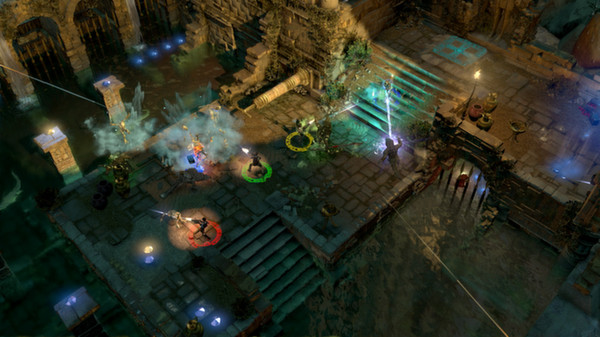
-
Lara Croft and the Temple of Osiris #2
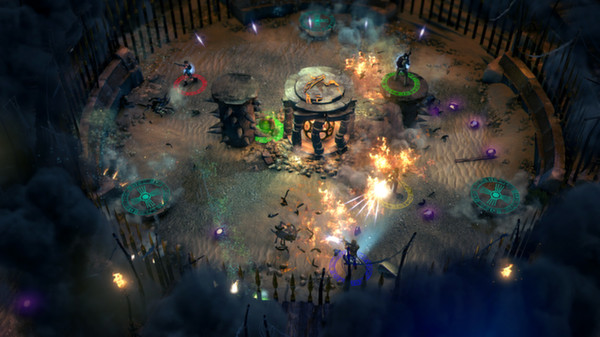
-
Lara Croft and the Temple of Osiris #3
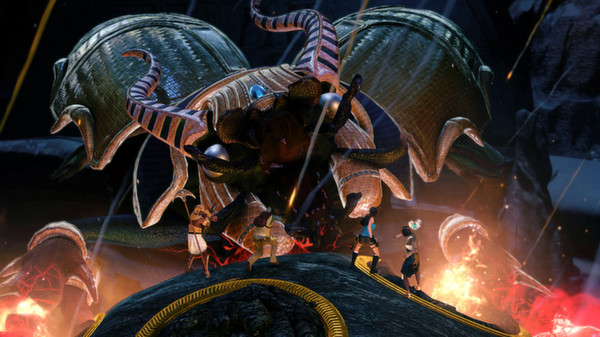
-
Lara Croft and the Temple of Osiris #4
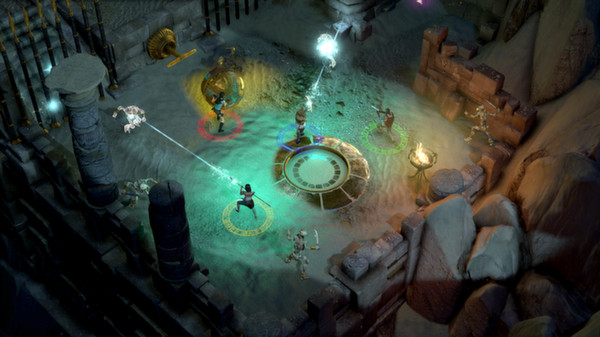
-
Lara Croft and the Temple of Osiris #5
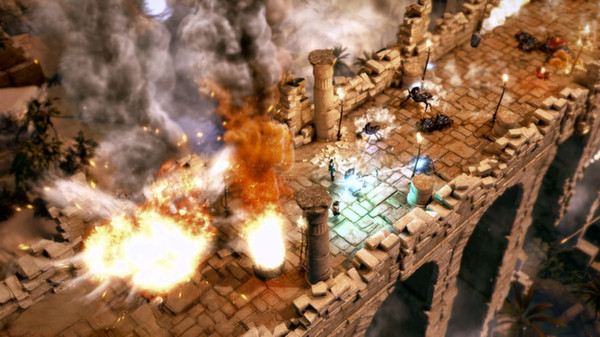
-
Lara Croft and the Temple of Osiris #6
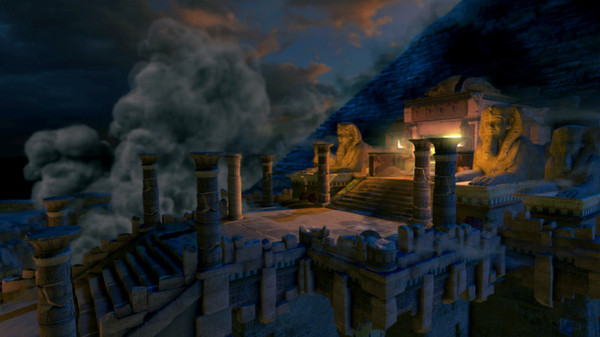
-
Lara Croft and the Temple of Osiris #7
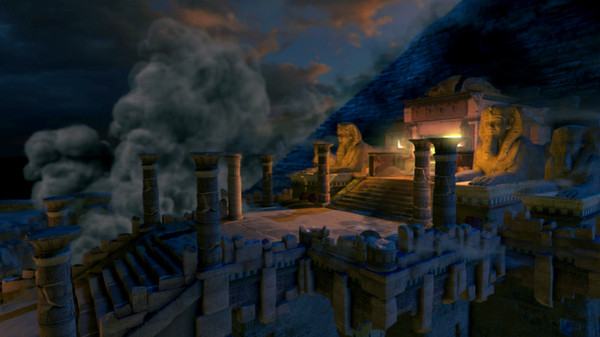
-
Lara Croft and the Temple of Osiris #8
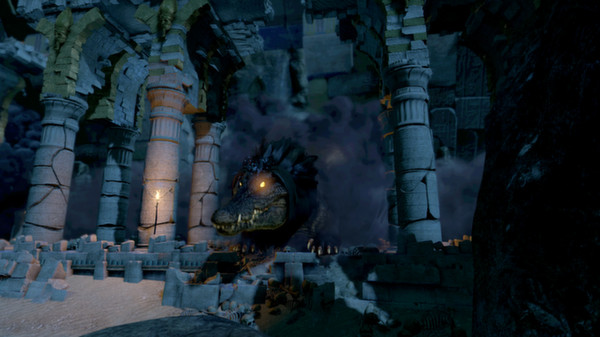
-
Lara Croft and the Temple of Osiris #9
